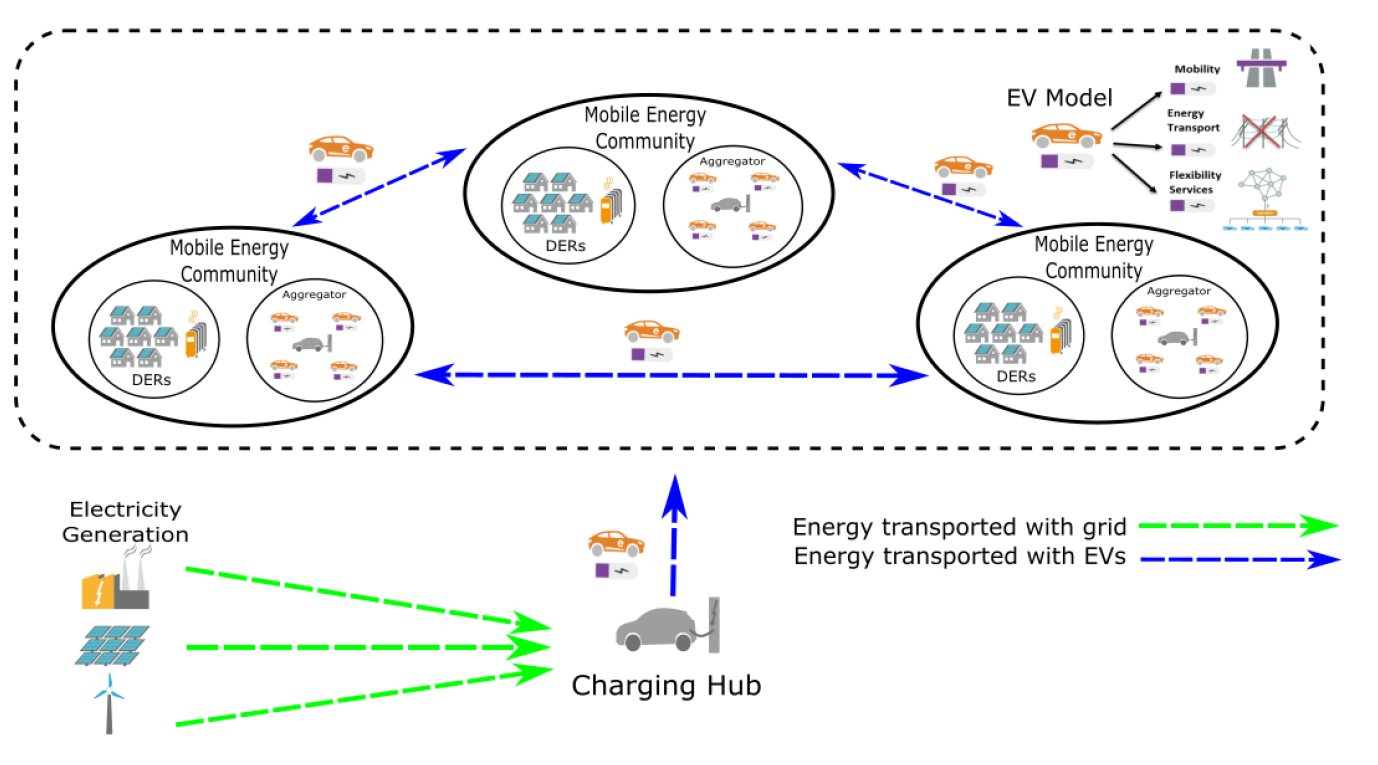Flexible Energy Communities: Coupling E-Mobility and Energy Communities (FLEXECS)

Project description
Energy systems are becoming more decentralized, creating challenges and opportunities for the energy transition. Energy communities (ECs) are pivotal to decentralized energy systems, enabling shared energy production, consumption, selling and storage. However, there is a common assumption that ECs are bound to people living in relatively close proximity, mostly due to constraints of fixed energy grids, which strongly limits ECs and their success. To benefit from existing social communities for creating new energy sharing opportunities, like-minded citizens living further apart must be able to participate in ECs, too. FlexECs addresses this challenge by integrating ECs and electric mobility into “mobile ECs,” thereby boosting social innovation. Electrical vehicle (EV) batteries enable the transportation of surplus energy from one location to another without being constrained by the fixed energy grid, expanding the scope of ECs. This novel approach thus creates more flexibility in the future design of ECs and accelerates the energy transition. The project is a multidisciplinary one studying the social, legal, business spatial and technical factors needed for the implementation of the FlexECs concept.
From a technical perspective, the project will focus on the optimization of EV charging and routing to study the capabilities of different fleets of EVs to transport energy between different locations. Factors such as different models of EVs, fuel consumption, and Shared (Autonomous) or private EVs will be considered in the calculation of the energy transport capabilities. Smart bidirectional algorithms will be developed to study the flexibility potential as well as the energy transport capabilities. The grid flexibility potential will be studied with the ability of the EVs to provide grid flexibility services in both locations.
The solution will be compared with other future energy transport strategies such as grid reinforcement, or hydrogen gas grids with a series of KPIs to study not only if it is technically achievable but also it is a good strategy when compared to the other existing ones.
PhD Candidate:
Alvaro Menendez Agudin
Supervisor:
Gautham Ram Chandra Mouli
Promoter:
Pavol Bauer